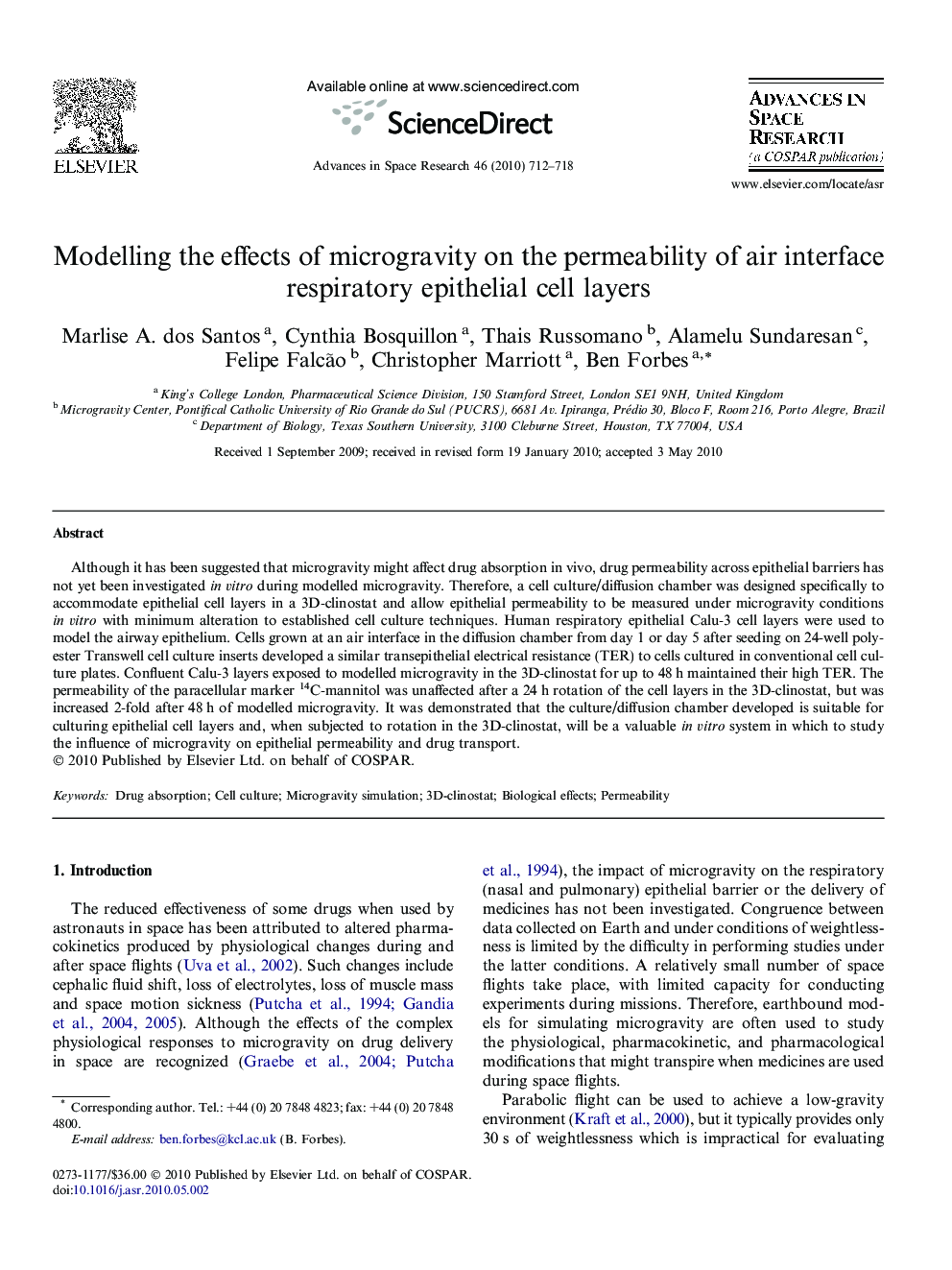| Article ID | Journal | Published Year | Pages | File Type |
|---|---|---|---|---|
| 1766189 | Advances in Space Research | 2010 | 7 Pages |
Although it has been suggested that microgravity might affect drug absorption in vivo, drug permeability across epithelial barriers has not yet been investigated in vitro during modelled microgravity. Therefore, a cell culture/diffusion chamber was designed specifically to accommodate epithelial cell layers in a 3D-clinostat and allow epithelial permeability to be measured under microgravity conditions in vitro with minimum alteration to established cell culture techniques. Human respiratory epithelial Calu-3 cell layers were used to model the airway epithelium. Cells grown at an air interface in the diffusion chamber from day 1 or day 5 after seeding on 24-well polyester Transwell cell culture inserts developed a similar transepithelial electrical resistance (TER) to cells cultured in conventional cell culture plates. Confluent Calu-3 layers exposed to modelled microgravity in the 3D-clinostat for up to 48 h maintained their high TER. The permeability of the paracellular marker 14C-mannitol was unaffected after a 24 h rotation of the cell layers in the 3D-clinostat, but was increased 2-fold after 48 h of modelled microgravity. It was demonstrated that the culture/diffusion chamber developed is suitable for culturing epithelial cell layers and, when subjected to rotation in the 3D-clinostat, will be a valuable in vitro system in which to study the influence of microgravity on epithelial permeability and drug transport.
